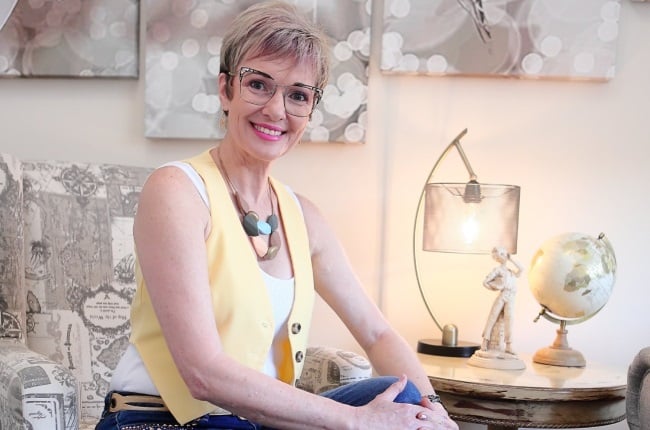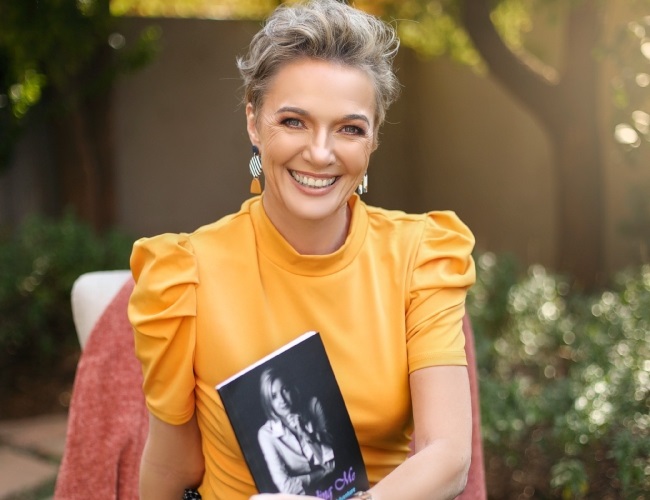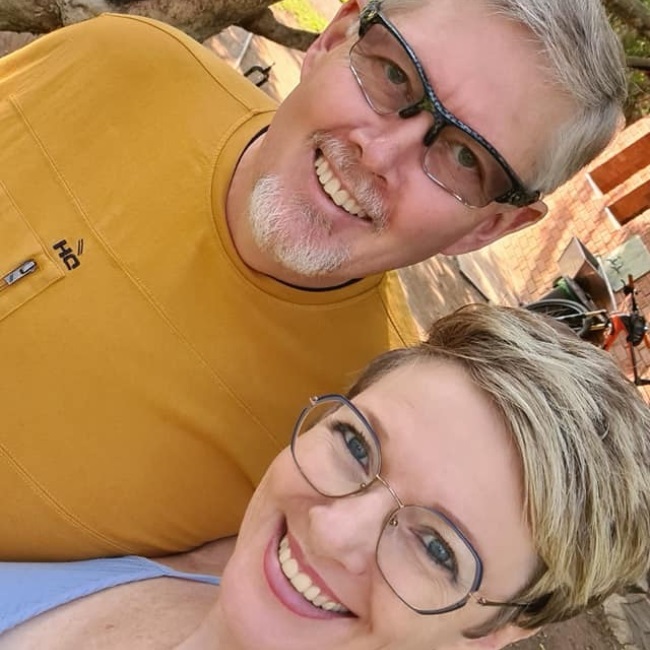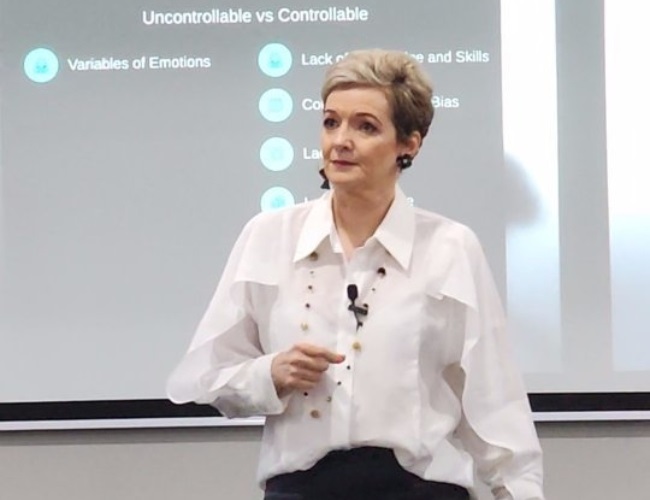
Picture the scene: it’s the start of a new school year and your child comes home after the first week and tells you she’s finished all her homework in class. You want to believe her, but somehow it seems too good to be true.
You’re also back at work and have scheduled an important meeting for your team, but one guy doesn’t pitch up, saying he “forgot” about it.
And you can’t help noticing your colleague at the water cooler looks decidedly shifty when she tells you the new outfit you have on looks great.
It’s sometimes hard to sort fact from fiction and with research showing that on any given day you will be lied to anything from 10 to 200 times, it’s impossible not to feel paranoid.
There’s one way to know for certain if you’re being told a tall tale: you could ask someone like Lizette Volkwyn. As one of only two certified human lie-detectors in South Africa, she’s trained to sniff out lies.
“The truth is, we all lie,” Lizette (56) says. “And we don’t necessarily do it to deceive someone, but rather to protect ourselves.”
Companies hire her to sit in on high-profile job interviews or when an employee has been accused of theft. But she doesn’t just play detective to catch people out.
Lizette, a full-time life coach who’s written a book, says she uses her skills when talking to her clients so she can get to the truth of their situation.
“If I know someone’s lying to me, I’ll change my questions and approach so that the person opens up to me in a different way.”
So does her husband, Martin, have to be on guard all the time living with a human lie-detector?
“Well, not really,” she says with a chuckle. “It’s obviously difficult to switch off, but I’d never confront anyone and tell them they’re lying to me. If my husband comes home and I ask him how his day was and he tells me he had a good day and I can see he’s lying, I let it go.”
Lizette, a mom of three kids and five grandchildren, lives on an estate near Kempton Park, east of Johannesburg, where she sees most of her clients.
She decided to get into life coaching after working in the corporate world for 25 years because “my passion has always been people”.
She completed a course in 2012 to become a life coach and also qualified in neurolinguistic programming, an approach to communication and personal development based on the principle that language and behaviour are related.
It was during this training that she discovered she had an innate ability to detect lies.
“I was always the one who could sense when someone wasn’t telling the truth," she says. My tutor noticed this and suggested I pursue it further.”
She then completed a course in detecting deception at the Paul Ekman Group in the US, which runs personal development training and development programmes. “I was the only non-US citizen in my group and I was the only one who passed with 95% and 92%,” she says.
She’s since completed online courses in the US and Canada for her coaching practice .
Lizette says she’s not perfect and doesn’t claim to be able to detect every lie. “There are definitely people who are better at lying than others. But generally, if I suspect someone is lying, I’m usually right."
So how does one go about detecting a lie? “There are certain things to look out for,” Lizette says. “If someone avoids making eye contact, repeats themselves, touches their face or mouth or speaks in a monotone voice, it could be a sign they’re not telling the truth.
“But it’s important to remember that these aren’t definite signs – it’s about looking at the overall body language and behaviour.”
READ MORE| She may be 94 but this Durban granny doesn't plan to put down her racket any time soon
Lizette explains the principle behind her art: your subconscious knows when you’re lying; therefore, all kinds of small, unintentional details including what you say and how you act will give you away.
“Nobody can control their subconscious. Even a psychopath or a pathological liar’s subconscious will betray them. It just takes longer to unravel these people’s lies because they believe their own lies.”
Some factors of human lie detection overlap with those of interrogation and the two do have similarities. Human lie-detectors like Lizette don’t use machines such as polygraphs to catch people out.
“Polygraph tests monitor, among other things, oxygen, blood pressure and heart rate,” Lizette says.
What she does is something entirely different. “Human lie detectors can have an accuracy of about 95%, but it is not always the case. Polygraph tests’ accuracy rate can be as low as 63%, but this is not the highest level of accuracy that can be achieved. The reason for this is that people can regulate their blood pressure and can practise being cool and calm, thereby fooling the machine.”
A person’s behavioural patterns and body language are like a puzzle you can put together, Lizette adds. You just have to follow the clues. “Because a person’s subconscious knows they’re lying, there’s a split second where a facial expression or body language can give it away. That’s what I look for.”
“There’s also a small nerve under your nose that usually gets activated when you lie.
A gland in the nose starts to itch when a lie is told – known as a so-called micro-expression.
“Another way to determine if someone is hiding something from you or trying to avoid a question is that their shoulders will suddenly rise after they’ve answered your question, but not in every case.
“Someone who’s lying to you will always want to put space between you and them.
Look for signs where they, for example, recoil and take a step back when they answer you.”
Human lie-detectors – like polygraph tests – can’t be used in criminal cases, according to Dr Llewelyn Curlewis, a criminal law expert at the University of Pretoria.
“The reason for this is that someone could be sent to prison based on a method that isn’t 100% accurate.
“However, the methods of human lie-detectors are recognised by companies in disputes when an employee is suspected of stealing, for example. In most cases, work contracts will stipulate that your employer can submit you for polygraph tests.”
The way someone talks can also give away a lie. “If someone usually talks clearly and quickly, but suddenly becomes softer and slower, it’s a sign."
But Lizette cautions against following the same recipe when trying to unravel a lie, as everyone is unique and hides their fibbing in a rather singular manner. “You also have to be careful about jumping to conclusions. It’s important to look at the whole picture and not just one or two signs.”
It takes time and diligent training to become a human lie-detector.
“There’s no textbook by which to treat every person,” she stresses. “Things just aren’t that simple.”
This is an edited version of the original article which was published.




 Publications
Publications
 Partners
Partners




















